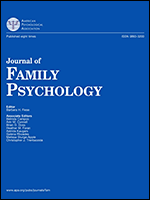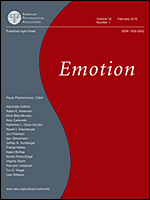-1.png)
FAMILY AFFECT, BELIEFS, AND BEHAVIORS LAB
About Our Lab
Welcome to the Family Affect Beliefs and Behaviors web page. Our lab includes 10 undergraduate students, 3 graduate students, and 1 postdoctoral fellow, with Dr. Amy Halberstadt heading our collaborative ventures.
RESEARCH INTERESTS
Our research centers around three questions that are inherently intertwined.
ONE
What are the developmental processes in experience, expression, and understanding of emotion?
TWO
What are the emotion socialization processes in family, school, and culture?
THREE
What are the inadvertent ways in which racism emerges and is perpetuated in emotion-related perceptions and socialization messages?

QUESTIONS WE TRY TO ANSWER
WHAT IS AFFECTIVE SOCIAL COMPETENCE?
How is affective social competence developed through the beliefs and behaviors of the people engaged in children's lives?
How do children develop skills in emotional understanding?
What are the skills, assumptions, and misperceptions of others regarding children's experience and expression of emotion?
HOW DO PARENTS AND TEACHERS INADVERTENTLY PERPETUATE RACISM?
How is racism perpetuated through both explicit thinking and unconscious ideologies?
In what practical ways can we measure specific components of individual and systemic racist practices?
How can we co-create with parents, teachers, and schools ways that work to effect change?
HOW DOES CULTURE INFLUENCE HOW WE COME TO EXPERIENCE, EXPRESS, AND UNDERSTAND EMOTIONS?
What are the complex ways that culture, race, socioeconomic status and gender intersect with children’s own emotion-related schemas for experiencing emotion, expressing emotion, and understanding the emotions of others?
How do myriad aspects of culture (geographies, histories, values) impact the emotional socialization process?
How do socializers’ perceptions of race, class, and gender impose themselves on or constrain developing children’s trajectories at home and in school?
HOW ARE COMPLEX EMOTIONS CO-CREATED IN OUR SOCIAL WORLDS?
Current emotions and emotion-related attitudes include respect, gratitude, and wonderment.
LAB CONTACT INFORMATION
Interested in meeting with the FABB lab?
Fill out our Get in Touch form below and we will reach out to you at our earliest convenience.

-1.png)





